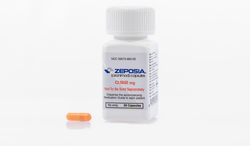
On the 23rd of last month, BMS Pharmaceutical's ulcerative colitis treatment "Zeposia (component name Ozani Mode)" was approved in Korea by the Ministry of Food and Drug Safety.
Zepocia is used to treat moderate to severe active ulcerative colitis in adults who do not respond appropriately to universal treatments (treatment of corticosteroids, immunosuppressants, etc.) or biological agents, or have no response loss or drug resistance. It is a 0.92 mg capsule-type preparation, and 0.23 mg, 0.46 mg, 0.92 mg sequentially from the 1st to the 7th day of administration, and 0.92 mg is administered as maintenance therapy from the 8th day after the increase.
According to a phase 3 clinical study in which 0.92 mg of zephosia was administered once a day for 10 weeks in adult moderate-severe ulcerative colitis patients, 18.4% of the zephosia administration group (n=429) achieved a major evaluation variable, while the placebo group (n=216) achieved 6%. Clinical response was also significantly higher than the placebo group (25.9%), with 47.8% of the zeposia administration group.
Subsequently, as a result of observing the maintenance therapy effect until the 52nd week in patients (n=230) who showed clinical responses to zephosia induction therapy, the clinical remission rate of the zephosia-administered group was 37% at the 52nd week, which was significantly higher than that of the placebo group (18.5%). The clinical response was also higher in the zeposia-administered group than in the placebo group (60% vs 41%).
In the safety profile, the incidence of infection was similar in the zephosia-administered group and the placebo group during the induction therapy period, and the incidence of severe infection was less than 2% for 52 weeks in both the zephosia-administered group and the placebo group.


